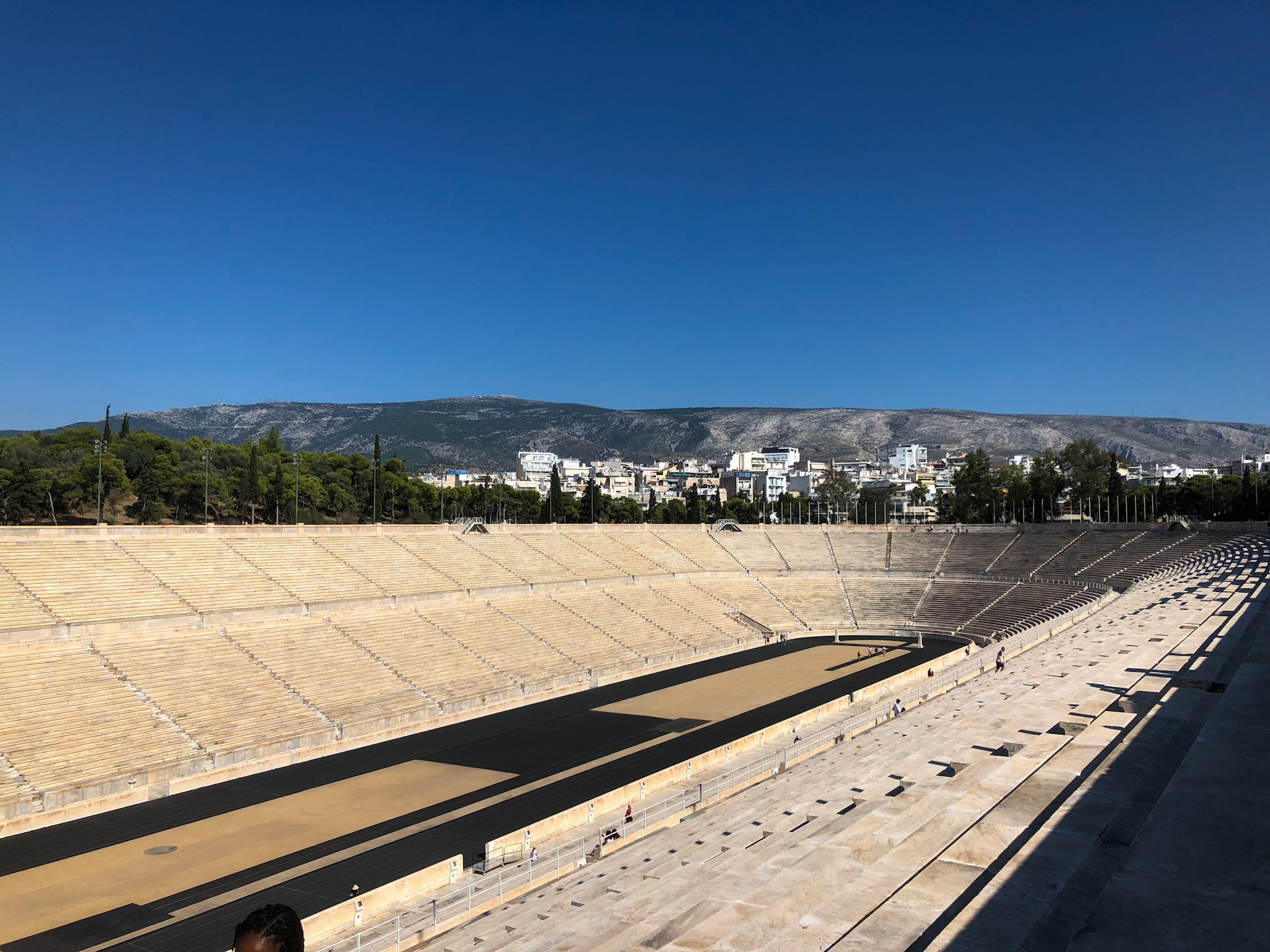“Citius, Altius, Fortius!”
The Olympic motto, at least the modern motto.
Faster, Higher, Stronger!
Coined in 1894 by Pierre de Coubertin, the founder of the IOC.
However, the games are much older than 1894. Started in 776 BC as a part of a religious festival honoring Zeus. The father of all Greek Gods and Goddesses’. The festival was held in Olympia, a rural sanctuary site. Named for Mt. Olympos, the highest mountain in mainland Greece, home to the greatest Greek Gods and Goddesses’. Through the years, the site expanded to include workshops, more beautiful Temples, and facilities for the athletes.
Disclosure: Some links on our site are affiliate links. If you purchase a linked item, we will make a commission, at no extra charge to you.
All Greeks that came to the festival shared the same religious beliefs and language. Athletes were males from every city-state from every corner of the Greek world. Obviously, this is not so today. Every religion is welcomed from every nation. And both men and women compete for glory in a multitude of sports.
While there are many different sports (with more added and removed almost every Olympiad), this was not always the case. The original games consisted of one event. A foot race called the Stadion. The Stadion is a measure of linear distance equal to 600 feet. The first winner was Koroibos, a cook from the nearby city of Elis.
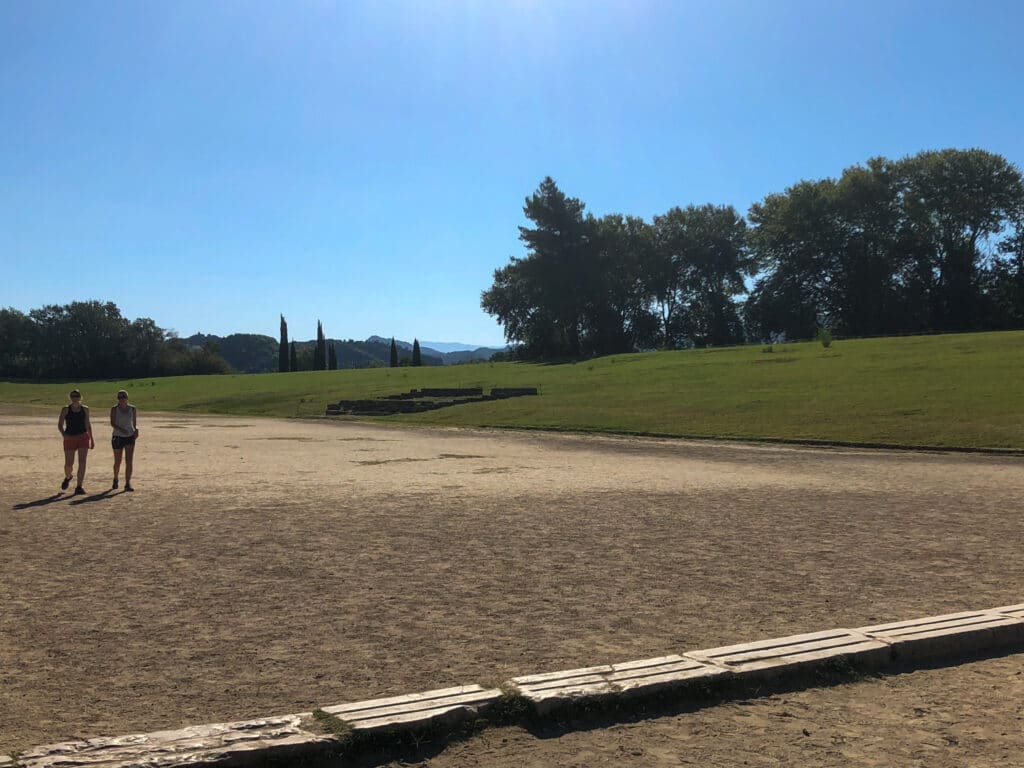
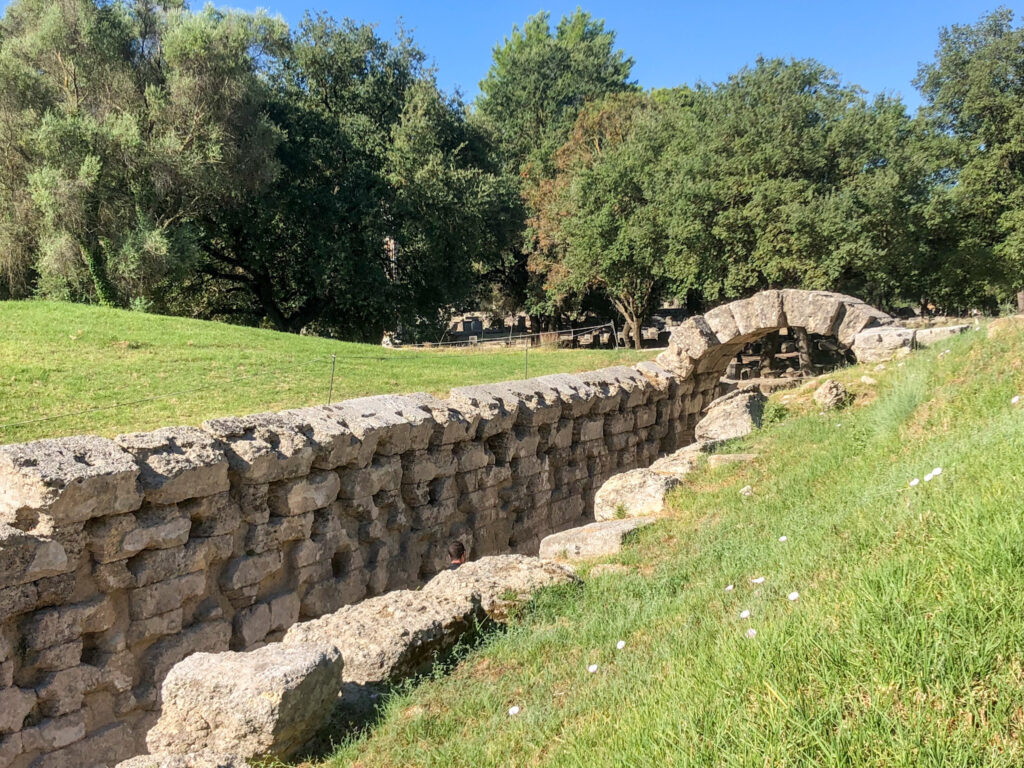
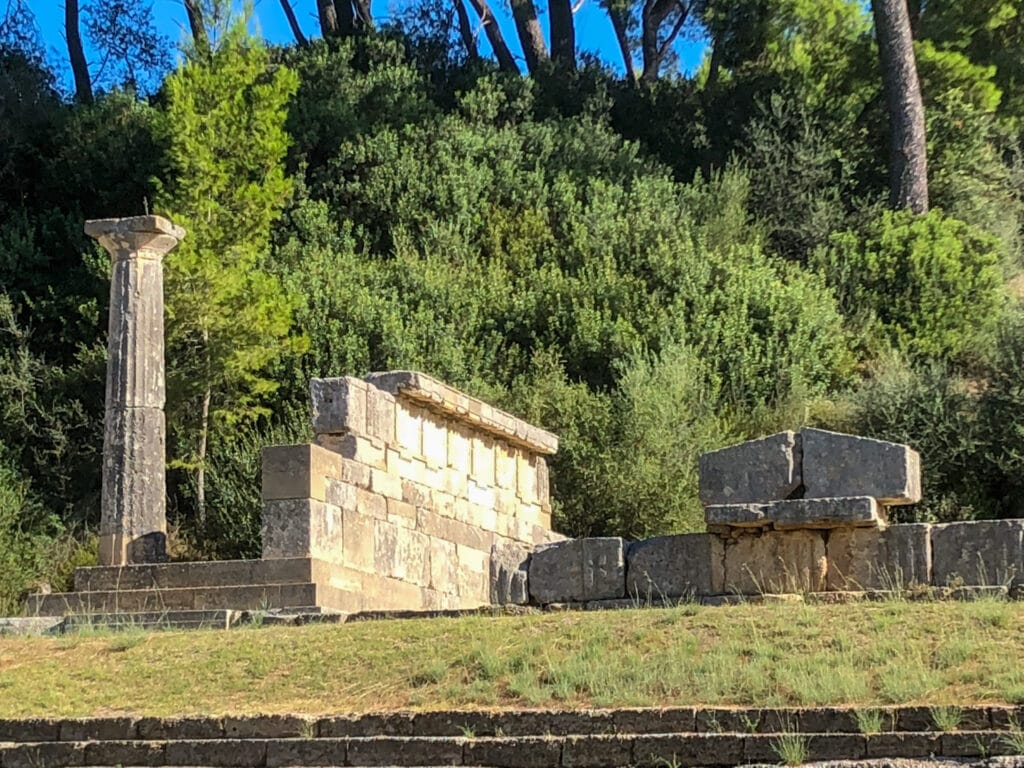
The accepted story is this was the only event for the first 13 Olympic festivals. From 776 BC, the Games were held in Olympia every four years for nearly 12 Centuries. While the games were held for 1,169 years, until 393 AD when they went away, they went away. It took 1503 years for the Games to return. But more on that later.
Did the athletes participate nude? There are two stories. One is a runner from Megara, Orsippos, who lost his shorts during the Stadion in 720 BC. How you lose your shorts running 600 feet is beyond me. That’s why I find the other story more plausible. In the 8th Century, Spartans introduced nudity as it was their tradition. Either way, by the late 8th Century, nudity was common for contestants.
But were the athletes in these Games amateur or professional? Well, Ancient Greece didn’t have amateur athletes. But they didn’t have professional athletes either. There was no distinction between the two. All were simply Athletes, albeit well compensated. They regularly received prizes worth substantial amounts of money. In fact, the word athlete is an Ancient Greek word meaning “one who competes for a prize”. Also, it is related to two other words. “Athlos” means contest and “athlon” means prize.
Additionally, the original Olympics didn’t have a Torch or Flame. The idea of the Olympic Torch was inaugurated in the 1928 Olympic Games in Amsterdam. The modern Torch relay was instituted at the 1936 Berlin Games. However, the lighting of the Olympic Flames takes place at Hera’s Altar. Located at Olympia, just outside the entrance to the original stadium, a ceremony signifies the official beginning of the contemporary Games.
As with any large gathering of different people, there is a potential for problems. Even when they speak and believe the same things. The Ancient Games were no different. There are many stories of battles between differing city-states as it pertains to the Games. Mainly over control of the Sanctuary of Zeus and control of the Games. Control brought great prestige, economic advantages, and political influence. To protect against military incursions and interruption of the Games, city-state Elis instituted the Olympic Truce. Every four years, Elis sent special heralds to the four corners of the Greek world. They announced the approaching Games and Olympic Truce. The Truce protects athletes, spectators, visitors, and official embassies from becoming involved in local conflicts. Aside from a few exceptions, the Games are held in peace.
Modern Olympic Games
Fifteen Centuries later, the idea of the Games is reborn. Baron Pierre de Coubertin presented the idea in 1894. He intended to reintroduce the Games in his native Paris in 1900. Delegates of 34 countries are enthralled with the concept and convince him to move up the Games to 1896. Additionally, Athens serves as the first host.
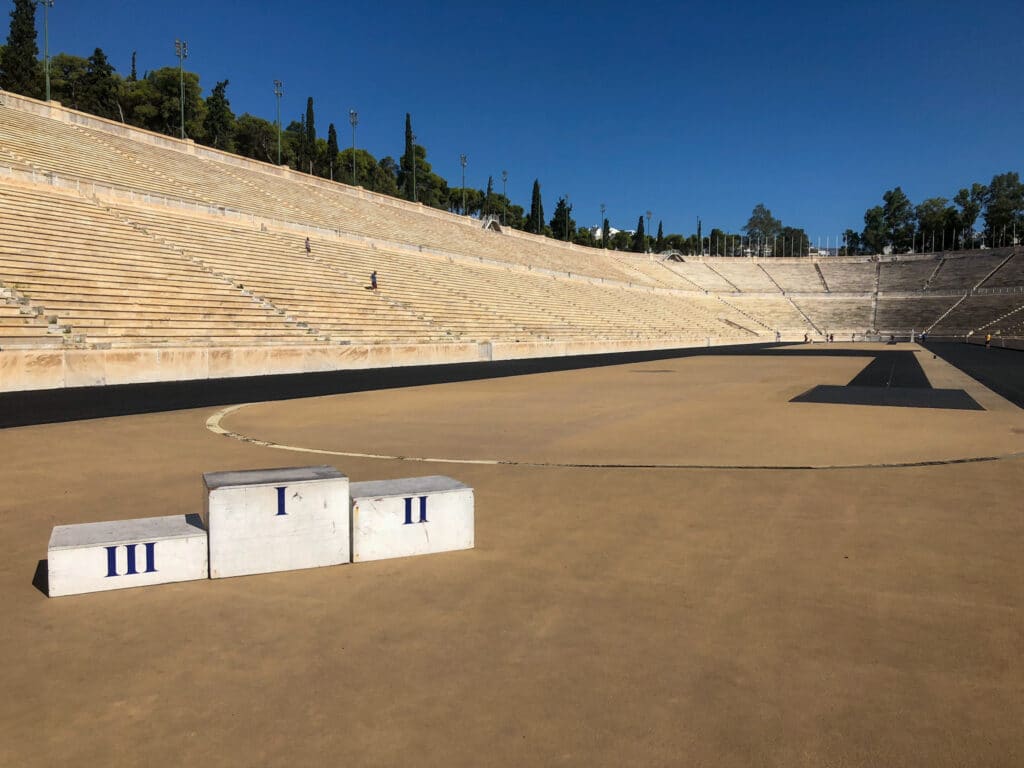
On April 6th, 1896, King George of Greece opened the Games of the I Olympiad. 14 nations and 241 athletes competed in 43 events in 9 sports. Participants are all European (or living in Europe) except the United States. Over 65% are Greek. Ten days later, on April 15th, the Games closed. But the Olympics are back!
The Panathenaic Stadium in Athens plays host to the opening and closing ceremonies. Four of the nine events as well. Built on the site of a simple racecourse from c. 330 BC, it was rebuilt in 144 AD out of marble. Its capacity is 50,000 spectators. It is still the only stadium in the world built entirely of marble.

